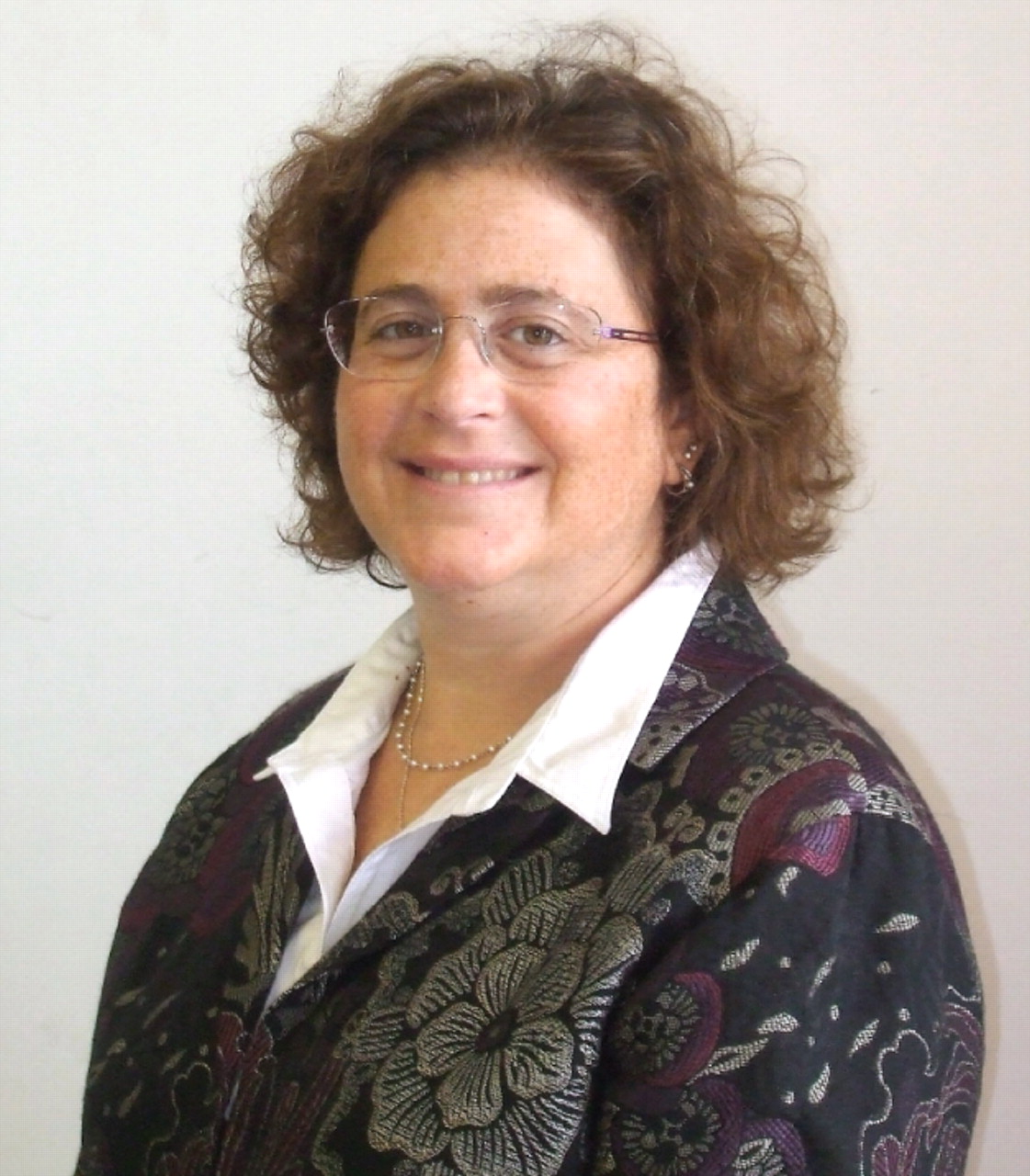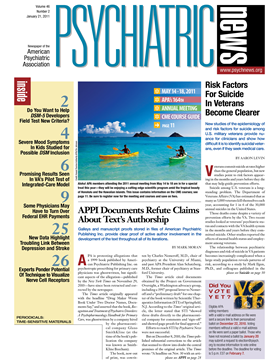Don't tell psychiatrist Liza Gold, M.D., about stigma. She's experienced it in triplicate.
Gold is the mother of two children with ADHD and knows the trials associated with getting the kind of treatment and specialized academic attention such children may need; she also knows the biases and prejudices that others may have toward a challenging child.
But in a December 2010 article in Psychiatric Services titled “The Psychiatrist-Mom: Added Stigmatization When Children Have ADHD,” Gold described a kind of stigmatic triple jeopardy: the stigma associated with being a psychiatrist, with being the parent of a child with a mental disorder, and with being a psychiatrist and parent who has sought treatment, including medication, for her child.
“I read Psychiatric Services every month, and I saw an article about a study done regarding stigma experienced by families with a child newly diagnosed with ADHD,” Gold told Psychiatric News. “It prompted me to think about my own experience and the additional stigma attached to me—and by extension to my family—because I am a psychiatrist.”
Gold, a clinical and forensic psychiatrist in Arlington, Va., is no stranger to publishing. She is a two-time winner of the Manfred S. Guttmacher Award from APA and the American Academy of Psychiatry and the Law—the first time in 2006 for her book Sexual Harassment: Psychiatric Assessment in Employment Litigation (published by American Psychiatric Publishing Inc.), and more recently for her 2009 book (with Daniel Shuman, J.D.), Evaluating Mental Health Disability in the Workplace: Model, Process, and Analysis (published by Springer).
Prior to writing the Psychiatric Services article, Gold and her husband consulted their children, who are now 17 and 14, and received their consent to publish what was a deeply personal account of their family life—one that might help other families with similar struggles. And, in fact, Gold said the response to her article has been striking; within a week she received more than 10 e-mails and since that time another five or so from psychiatrists who connected with some aspect of her story.
“I think psychiatrists are used to the idea that there are variants of stigma around mental illness, some of them associated with being a psychiatrist,” Gold said. “There's the idea that all psychiatrists are ‘crazy,’ as well as the idea that all psychiatrists' kids have problems. So some people who responded to the article were not necessarily parents of kids with a mental disorder, but were talking to me about those stereotypes.”
In the article, Gold described her son's severe difficulties, beginning as a toddler and resulting in disciplinary problems as early as preschool and kindergarten. And she also described the extraordinary improvement her son experienced after beginning treatment with methylphenidate—and the judgment she felt from others as a result.
“Our son received a formal diagnosis of ADHD that year, at age 5, and we started him on medications,” Gold wrote. “My husband and I both remember our amazement the first time our son sat through a meal. The medications have not resolved all his behavioral problems, but they have helped him tremendously, both academically and socially. My son's teachers have been consistently grateful for our willingness to use medication, especially when they are exposed to the alternative.
“But family and many friends were judgmental: How could we start a 5-year-old on medication, especially one as smart as our son, who had taught himself to read before age 4? They seemed to assume that he was different because he was so smart. Anyway, the logic went, a lot of boys are a handful at that age, and that's not a reason to put a 5-year-old on medication.”
That much many parents of children with ADHD could understand. But for Gold, there was an added twist. “They concluded that the problem was that I was a psychiatrist,” she wrote. “Clearly, I was pathologizing a boy who was just being a boy. How else would you expect a mom who is a psychiatrist to handle a rambunctious, precocious 5-year-old besides putting him on medication?”
In an interview with Psychiatric News, Gold reiterated the extraordinary relief—to the entire family—that came with treatment. And she emphasized that the medication has been adjunctive to group and individual therapy. “We had never, ever seen this kid sit still through an entire meal,” she said. “After the start of medication, my husband and I looked at each other and couldn't believe the change in his behavior. It was so profound, and he really began to achieve his academic potential. It has made all the difference in [his] academic life, but also in our home life.”
Today, as a high school student and a National Honor Society member, her son “loves school,” Gold said.
A younger daughter was also affected, though it was harder to detect. Much quieter and without the element of extreme hyperactivity, she was a very bright child whose performance in school did not seem to reflect her level of intelligence and understanding of the academic material.
Gold herself was skeptical, but when the daughter was tested—and then retested after a medication trial—the results were undeniable. “Our daughter reported positive effects from the medication, and her academic functioning improved,” she wrote in Psychiatric Services. “Nevertheless, many people let me know that they thought I had ‘gone too far’ when they learned that I was allowing my second child to take medication. The message was all too clear: you are medicating your daughter because you are a psychiatrist, not because you have made a considered decision about how best to help her.”
Gold said the experience of being a mother of children with ADHD has heightened her awareness of the value of early intervention and treatment. “These are children who have deficits not only in learning, but in executive function,” she said. “If they aren't supported early on in their ability to learn and mature, they absolutely will not be able to develop the skills of executive functioning needed to have a successful adult life.”

